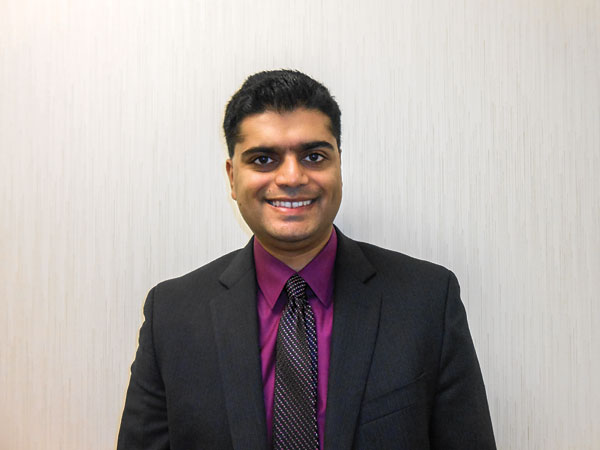 A revolution is afoot in the field of cancer care. Spurred by new insights into the genetic basis of tumors, scientists are pursuing ever-more-precise therapies to block their growth at the molecular level, engendering hopes that even the most complex and aggressive malignancies may one day yield to treatment.
A revolution is afoot in the field of cancer care. Spurred by new insights into the genetic basis of tumors, scientists are pursuing ever-more-precise therapies to block their growth at the molecular level, engendering hopes that even the most complex and aggressive malignancies may one day yield to treatment.
Dr. Gautam Prasad has spent the past several years on the cutting edge of this research, studying resistance in one of the deadliest cancers—glioblastoma multiforme, a tumor of the brain—and testing new methods to overcome it.
“Glioblastoma is a real challenge. Genetically, it’s a heterogeneous tumor with multiple mutations. No matter what cancer pathway is blocked, it will find a way to resist and continue growing,” he notes.
While a resident in radiation oncology at the University of California–San Francisco (UCSF), Prasad was first author in a laboratory study that examined the effectiveness of combining conventional chemotherapy with novel molecular compounds to treat the disease. The study’s promising results, published in the field’s preeminent journal, Neuro-Oncology, provided crucial preclinical evidence for the FDA to approve the combination’s evaluation in a human clinical trial that is now underway.
“One of the most difficult aspects of treating glioblastoma is that it ‘evolves’ quickly to regrow despite conventional therapies. Therefore, we used biomarkers [biological molecules] to identify the mutations in each glioblastoma, and we were able to molecularly tailor therapy to maximize its effectiveness,” he explained.
At UCSF, he took part in a joint clinical and research program, called the Holman Research Pathway, that was established by the American Board of Radiology to recruit exceptional physician investigators able to train simultaneously in radiation oncology and research.
He got an early start in the field of oncology the summer after his sophomore year at TCNJ.
“I had a great relationship with Steve Klug, one of my biology professors, and it turned out to be pivotally important. He connected me with the oncology research program at Bristol-Myers Squibb, where I was able to do laboratory studies on resistance to the chemotherapy drug Taxol. This spurred my interest in research and pointed me toward oncology in particular,” he recounted, adding, “I decided to continue on this path by enrolling in the joint MD/PhD program at the University of Alabama.”
Prasad’s research background complements his clinical practice at Epic Care, a large, multidisciplinary oncology practice in the San Francisco Bay Area where he was recruited in 2011 to establish neuro-oncology and radiosurgery programs. He recently received approval to enroll his patients in national clinical trials, which typically take place in academic centers, allowing him to pursue the most promising new treatments.
“As a clinician, my job is to keep my patients as functional as possible for as long as possible, and we’re now seeing some glioblastoma patients alive five years after diagnosis. By knowing which genetic mutations drive an individual patient’s cancer, we can determine what his or her prognosis is and what strategies to pursue, including aggressive treatment,” he notes. He adds, “In some cases, however, as with older patients, it sometimes makes sense to do less treatment to enhance quality of life. Just as therapies are becoming increasingly personalized, so is care. The more we know, the better we are at customizing.”

